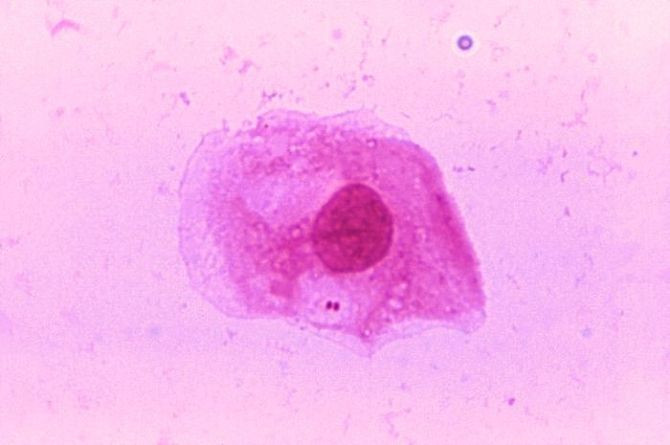US Officials Investigate Mysterious Death of 25-Year-Old Scientist, Hours after Handling Rare Bacteria

Health officials are investigating how 25-year-old researcher died Saturday, hours after handling an infectious meningitis bacteria in a California laboratory.
The unidentified San Francisco Veterans Affairs Medical Center researcher died about 17 hours after first reporting symptoms after leaving work on Friday, according to the San Jose Mercury News.
"He left the lab around 5 p.m.," Dr. Harry Lampiris, chief of the VA hospital's infectious diseases division told the paper. "He had no symptoms at all."
However, two hours later the man reportedly told his girlfriend that he had a headache, fever and chills, and it wasn’t until Saturday morning that his symptoms had worsened and he developed a body rash.
He had asked his friends to take him to a hospital, but he fell unconscious on the ride there and arrived with no pulse. The researcher was later pronounced dead that morning.
“People in the lab didn't think there was any evidence that he was either sloppy or inadequately trained,” Dr. Lampiris told MSNBC.
Colleagues of the dead researcher, who majored in biology and joined the laboratory in October 2011, felt like he was “highly competent” and was “adequately supervised” when handling the rare and infectious Neisseria meningitidis bacterium, a germ that he had been studying at the laboratory for weeks and months before his death.
Officials confirmed that the rare strain that the researcher and his follow colleagues had been studying, Serogroup B, was also the same one later found in his body.
The researcher is believed to have suffered from either septicemia or meningitis, two resulting conditions that can be caused by the germ.
Currently investigators believe that the man was more likely to have suffered septicemia, a bloodstream inflammation that results in bleeding to the skin and organs.
The other ailment could have been meningitis, a condition that inflames the thin membrane that surrounds the brain and spinal cord, and can lead to hearing loss, brain damage and in some cases death, according to the U.S. Centers for Disease Control and Prevention.
The man along with his colleagues had been researching the bacteria in hopes of finding a vaccine for the Serotype B strain, one of five major strains that cause meningitis and septicemia and currently has no vaccine.
The bacteria can spread through respiratory exposure via sneezing, coughing or kissing. Symptoms of the bacteria-contracted disease include having a stiff neck, fever, nausea and other symptoms that are similar to the flu.
"It starts out so nonspecifically people don't think it's anything serious," Lampiris told San Jose mercury News. "Obviously, he didn't suspect it."
Authorities at the San Francisco Department of Public Health are in the process of identifying everyone who had close contact with the researcher while he was infected, city health spokeswoman Eileen Shields told the paper.
The researcher friends and co-workers have been given preventative antibiotics, and state officials are investigating whether the lab the researcher worked in followed safety protocols.
The CDC is also helping state and city officials in the investigation into the researcher’s death.
"We're not certain how this death happened, but hopefully the investigation will turn up some answers to help prevent it from ever happening again," CDC spokeswoman Alison Patti said, according to the paper.
According to a 2005 study by the Journal of Clinical Microbiology, there have been 16 laboratory-acquired cases of meningitis infections, six were in the US between 1985 and 2001, and half of all the 16 researchers infected in the past had died.
Published by Medicaldaily.com



























